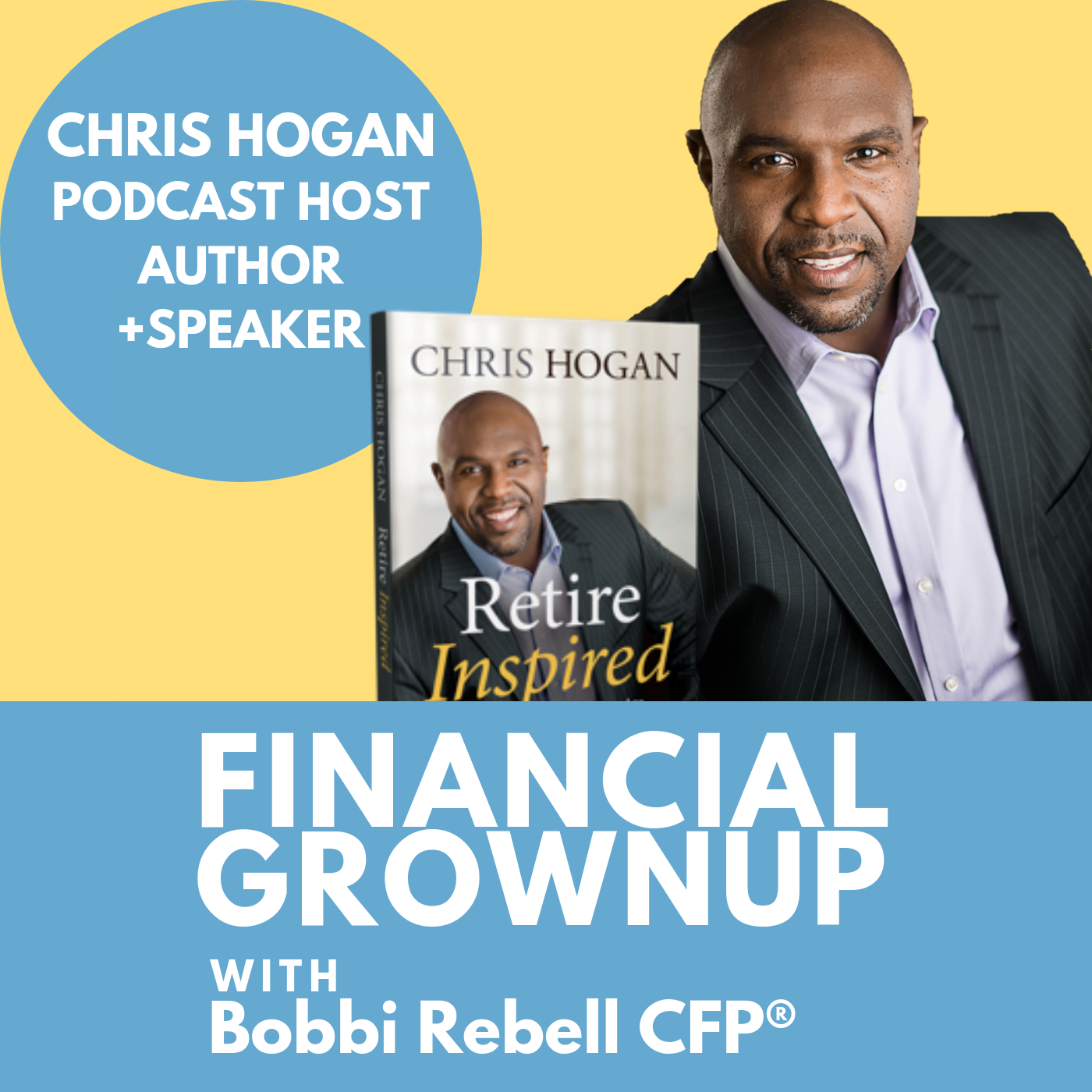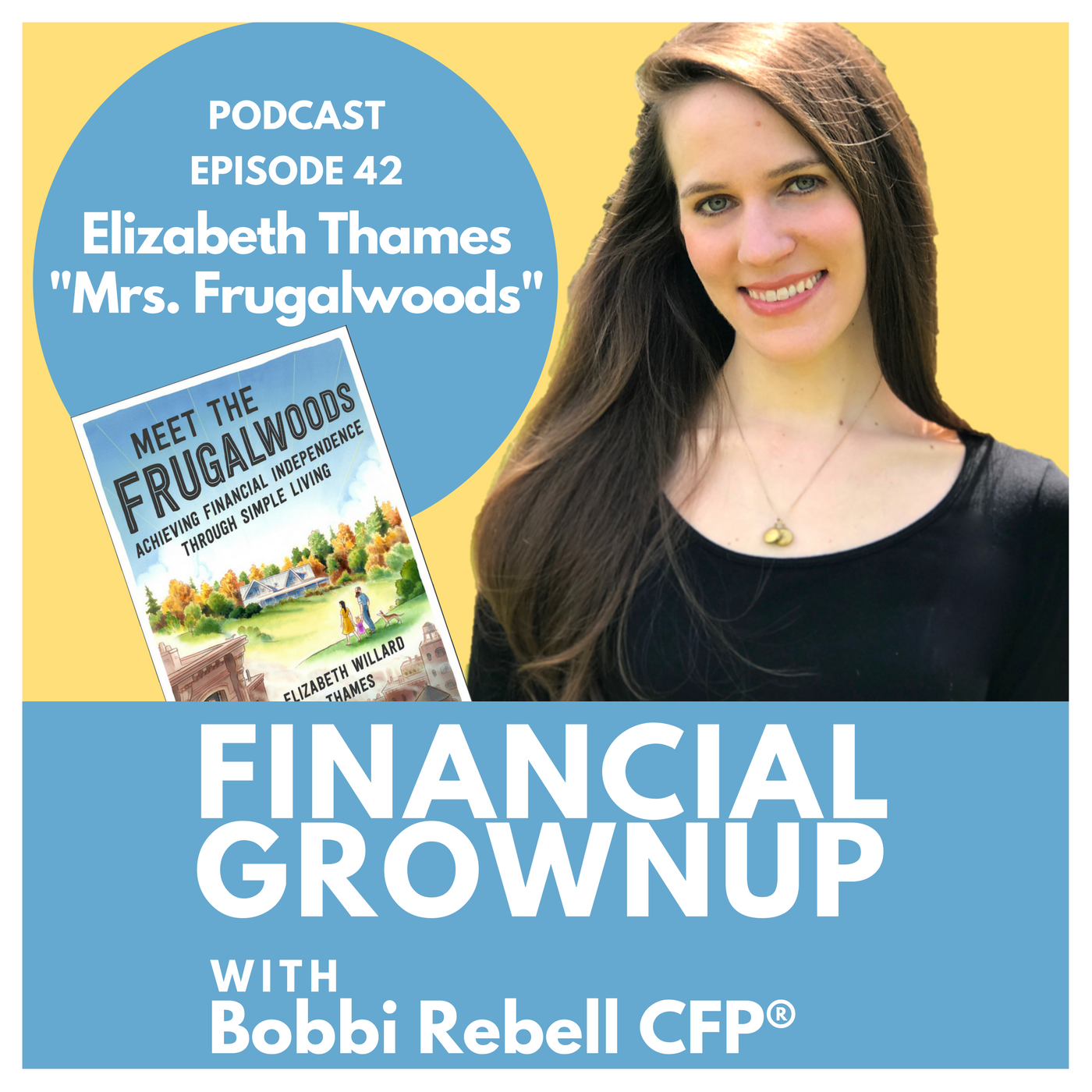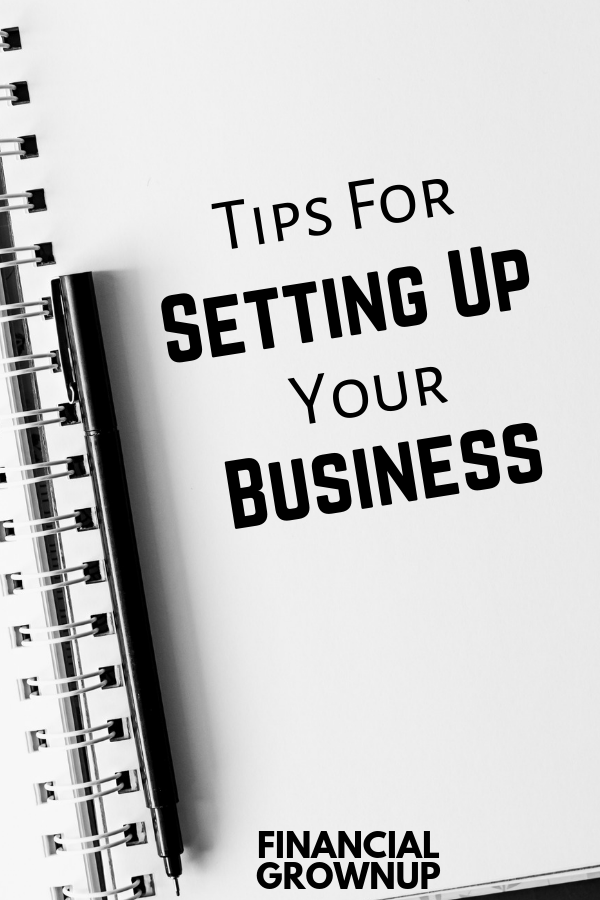Transcription
Erica Keswin:
I didn't have time for this meeting, but by investing one hour, which then led to two hours, in that face to face meeting over breakfast, I not only gained a friend but a true business partner.
Bobbi Rebell:
You're listening to Financial Grownup with me, certified financial planner Bobbi Rebell, author of How to Be a Financial Grownup. You know what? Being a grownup is really hard, especially when it comes to money, but it's okay. We're gonna get there together. I'm gonna bring you one money story from a financial grownup, one lesson, and then my take on how you can make it your own. We got this.
Bobbi Rebell:
Hey, Financial Grownup friends. You guys know I talk a lot about my walks with friends. Save money, save calories, and all the big ideas that come out of those walks. Today's guest, Bring Your Human to Work author Erica Keswin, is one of my favorite walking buddies, and one of my most motivating and inspiring friends. Just quickly want to welcome our newest listeners, and welcome back everyone else. We keep the shows to about 15 minutes because you're busy, but if you have a little more time, feel free to binge listen, and tell someone you care about to listen as well, so we can grow the show. Of course, please do all the things. Subscribe, rate, review. Do a screen grab if you can. Share it on social, and make sure to tag me so I can thank you.
Bobbi Rebell:
Let's get to Erica Keswin. She spent years working as a consultant, partnering with top researchers, and as I personally witnessed, traveling the globe, literally, to interview the most innovative business leaders in person, and you will appreciate why that face time is priceless. IRL all the way. It matters. The result? Bring Your Human to Work: 10 Surefire Ways to Design a Workplace That's Good for People, Great for Business, and Just Might Change the World, which is endorsed by big names, including ... You ready, guys? Katie Couric, Arianna Huffington, Adam Grant, and one of my favorite authors, Charles Duhigg, who you may know as the author of The Power of Habit. This is big, guys. I'm so excited to bring you this interview. Here is Erica Keswin.
Bobbi Rebell:
Hey, Erica Keswin. You're a Financial Grownup. Welcome to the podcast.
Erica Keswin:
Thank you so much for having me.
Bobbi Rebell:
I just finished reading your amazing new book, Bring Your Human to Work. It is a very well-researched book, going into depth on a number of companies from JetBlue, to Rebecca Minkoff, and you brought us a money story that has to do with the theme of Bring Your Human to Work. Tell us your money story.
Erica Keswin:
Sure. Last year, I was honored by an organization with an event called 10 Women to Watch. We had our first phone call with all 10 of us about six months before the event, and we went around and introduced ourselves in alphabetical order, and the last person to go was a woman named Shelley Zalis, founder of The Girls' Lounge, and The Female Quotient, and I know she was recently on your show as well, so it's a small world. I had heard of Shelley. I knew her name, but we had never met, and never talked on the phone. When she got done with her introduction, I remember saying to myself, "Wow. This is somebody who is very aligned on so many issues, and perspectives, and things that I think about, and I can not wait to meet her in person." What I didn't know on that call is that when she heard my introduction, she actually felt the same way.
Erica Keswin:
About two months later, I found myself in Los Angeles for a series of work meetings, and I was literally back to back, but I said to myself, "You know what? This is where Shelley lives. I'm gonna reach out, send her an email, and see if she has time to grab breakfast." I did. Long story short, the next morning, we met for breakfast, and the rest is history. She shared with me that she had that same feeling when she heard my introduction. We sat there. We were gonna meet for an hour. We each had meetings. We postponed our meetings, and we ended up there probably for close to two hours in that first meeting, and since that time, we've done work together, supported each other, become friendly. I interviewed her for my book. I've spoken at a number of her Girls' Lounges, and when I walked out of that meeting, I literally said to myself, "I didn't have time for this meeting, but by investing one hour, which then led to two hours in that face to face meeting over breakfast, I not only gained a friend, but a true business partner." It's a good reminder.
Bobbi Rebell:
Yeah, because being in person does make all the difference, especially when we spend so much time, as you say, left to our own devices. That's one of my favorite Erica catch phrases.
Erica Keswin:
Yeah. Left to our own devices, we're not connecting, and we need to be intentional. I try to meet at least one or two people in person every week. I mean, you and I will go decide ... That's one of the ways we got to know each other. We decided to go for a walk.
Bobbi Rebell:
Yes.
Erica Keswin:
And we didn't need to go for [inaudible 00:05:01], but we could actually go for a walk in the park around the reservoir. I know how great it is when I meet with people face to face, and I can't do it all the time, but by carving out a chunk of my week or my month to do it, it is good for me personally, but it's also been great for my business.
Bobbi Rebell:
And it also allows a space where you know, hopefully, somebody is not multitasking, because very often when we're on these work phone calls, we are distracted. When you're in person, unless you're rude and you're looking at your phone all the time, but I know you and Shelley are not, you're actually in the moment and you're focused on what's going on with that person.
Erica Keswin:
Yeah. I mean, we've all been on those calls where you say, "Erica, what do you think?" And I say, "Wait. What?" Then we all know what I was doing, and it was not honoring that relationship and being present. The technology is designed to suck us in, but again, we need to build in that intention or it won't happen, sadly.
Bobbi Rebell:
What is the lesson, then, for our listeners? Because so many of them are saying, "Yeah, yeah, yeah, yeah, but I don't have time."
Erica Keswin:
The lesson for them is to make the time, be strategic, and I know I've used this word a few times, but it's one of the most important things that I think about, which is be intentional. Look at your week. I know many, many people, every day, they'll take 30 minutes for lunch, and they'll make their doctor's appointments for themselves, or if they have kids, make them for their kids, and sit in their office, and get through their to-do lists. You can't not do that five days a week, so maybe just pick two days where you're gonna walk down the hall, or walk outside the office and meet somebody for a cup of coffee. Fit it into your schedule. All of us can look strategically at their calendar and say to themselves, "Does my calendar match my values?" If this is important to me, you can make it happen, and whether you use a paper calendar, or Google Calendar, the data will be clear, because you can look at where and how you spent your time.
Bobbi Rebell:
All kidding aside, I mean, we absolutely are friends, and we meet to walk as friends, but we have done a lot of talking about each other's businesses. I mean, your other business, the Spaghetti Project, I remember being so excited hearing about that with another friend, Caroline, on a walk. I still remember that walk, because I remember that "aha" moment when I was, "Oh my gosh. Erica is onto something really big." And it happened on one of our walks.
Erica Keswin:
No, it did. It did. The inspiration for the Spaghetti Project came out of research I was doing for the book, and I came across this study out of Cornell University by a professor named Kevin Nixon. Kevin's father was a firefighter, and when he was getting his advanced degree, he studied firefighters and studied firehouses. What he found was that the firefighters who were the most dedicated to that longstanding tradition of the firehouse meal, sitting around the table, building trust, investing in relationships, it was highly correlated with performance, meaning they saved more lives. That was a real goosebump moment for me, and I'm not out there saying we all need to eat together all the time. I know you and I decided to walk together, but there is a correlation between investing in connection and your own personal bottom line, and that of your business.
Bobbi Rebell:
That gives me the perfect intro to your everyday money tip, because that has to do with connecting with the people that we interact with in our daily lives.
Erica Keswin:
Every day, I go into my local Starbucks, and I got to know my local barista. Her name is Ashley Peterson.
Bobbi Rebell:
Featured in your book.
Erica Keswin:
Yup. She's featured in my book, and we developed a relationship over time. She took an interest in me. This was before the app, but she would have my drink ready when she saw me walking in. She got to know my kids. I got to know her personal story. What that led to was that she really would look out for me. Again, whether it was having my drink ready, if she could see the look in my face when I was late for school.
Bobbi Rebell:
You're never late, Erica. You?
Erica Keswin:
Yeah. I am pretty on time to early, but you never know. One of your kids has a tantrum in the morning, it could make you late. But then something so amazing and inspirational happened, again, based on this authentic connection that I had with Ashley. Ashley noticed that one of my kids, my daughter Caroline, developed this taste for their pumpkin scones, which only come out around ... They're seasonal, so they only have them around Halloween. But by November, they were gone. I'll give you only a piece of the story, because you'll read it in the book, but long story short, it's November 4th, Caroline had had her last pumpkin scone. We went by Starbucks. I got my coffee, but there was nothing else to get, and we kept walking to school.
Erica Keswin:
The next thing you know, I hear Ashley calling my name, literally running down Broadway, and I think I'd left my wallet or something in the store, given, again, this was before I bought my drink on the Starbucks app. She ran over, and was breathing so heavy, and she said, "Caroline, I know we're out of pumpkin scones, but now it's November into December and it's Christmas time, and we just got our amazing gingerbread into the store. I think it's something that you might like." It made my day. It made my daughter's day. I have to say, she didn't love gingerbread, especially as much as the pumpkin, but it was this moment for me where I thought, "Wow." This was so unbelievable. It was so human, and she did it because she looked out for me, and we had been mutually building that relationship over time. That became the inspiration for Bring Your Human to Work, because that is what Ashley did in that moment.
Bobbi Rebell:
Awesome. Let's talk more about Bring Your Human to Work. I think it was Do Something, where you talk a lot about the desk strategy, and how that office is set up, because the space that we work in also has a big impact on productivity and therefore the success of a company, and the success of you as an employee.
Erica Keswin:
Yes. 100%. One of the chapters in the book is called Space Matters, and what I would say to your audience is that I'm not talking necessarily that you have to go out and spend millions and millions of dollars to have the fanciest space and necessarily look like Google or Facebook. I'm talking about you can think strategically about your space, how people interact, and it doesn't have to cost anything, or doesn't have to cost much. Their phrase, they have something called "the reaping," which is a term named after Games of Thrones, which I'll admit I have not seen the show, but they come in every six months, and everybody knows the day before when the reaping is going to happen, and you come in, and you pick out of a hat, and the first person that picks gets to decide where he or she wants to sit, and then they go from there. One of the interesting things that I've seen in many companies is that if you have a startup, everybody does everything.
Bobbi Rebell:
Right.
Erica Keswin:
Right? I mean, you and I both know. We're running our own small business. We do everything. But then as you grow and you scale, it is very natural to become more siloed. All of a sudden, if you have 15 people in your company and you're all together all the time, that feels very different than when you're at 100 people or 500 people. However, the more people can talk to each other across functions, it's better for business. Your space impacts performance when you're able to mix up where people sit and how they move around the space, and bump into each other. It not only is good for people to build those connections, but it has a real impact on your business.
Bobbi Rebell:
Absolutely. So excited. The book is finally coming out after so much work I know you've put into it. I'm excited for everyone to finally get to read it. Tell us more.
Erica Keswin:
Great. Yeah. The book comes out on September 25. It's available for pre-order now on Amazon. Just look up Bring Your Human to Work, and if you want to find me, my website is EricaKeswin.com, E-R-I-C-A, K-E-S as in Sam, W-I-N. If you want to learn more about the Spaghetti Project, it's SpaghettiProject.com. You can find me on Instagram, @EricaKeswin, and on Twitter, @Erica_Keswin.
Bobbi Rebell:
Erica, this has been so wonderful and so special, so thank you for joining us.
Erica Keswin:
Thank you for having me. It was great.
Bobbi Rebell:
Hey, friends. Listening to Erica, I feel like I got a whole new perspective on how people interact with each other, not only in person, but also in the way that we communicate through technology. One of those is Financial Grownup tip number one. One of Erica's observations that we didn't get to talk about was something called "fubbing," or phone snubbing. It's when you look at someone directly in the eye, but at the same time, you're texting on your phone. It is a skill that I personally don't have, but it's a thing apparently. Don't do it, even if you do have that skill. As you will read in Erica's book, research has shown this kind of multitasking is not just rude, it's bad for business. Read more in her book.
Bobbi Rebell:
Financial Grownup tip number two. Bring Your Human to Work, as Erica says, but don't leave it at the office. Keep it with you in life. In other words, bring your human to life too, and take a lot of these lessons in addition to work, to your relationships outside of work. For example, next time you are talking to a salesperson or a waiter, or say, just ordering coffee, address the person by name, and look them in the eye. They're gonna appreciate it. It will likely get you better service and make for a better experience for both of you, and as a bonus, sometimes you'll get special treatment, as Erica and her daughter did with Ashley from Starbucks.
Bobbi Rebell:
Thanks to all of you for your support. Financial Grownup is a finalist for Best New Personal Finance Podcast at the [inaudible 00:14:39] awards, which recognizes excellence in money-related content creation. I wrote a pretty long post on it on Instagram, so follow me on Instagram, and check it out for some interesting background on me, and on the Financial Grownup Podcast, and how I got here. I am @BobbiRebell1 on Instagram, @BobbiRebell on Twitter, and learn more about the podcast at BobbiRebell.com/FinancialGrownupPodcast. Don't forget to check out Erica Keswin's new book, Bring Your Human to Work, great ideas for everyone to make their work and their life a little more human, and of course, thanks to Erica for bringing us all one step closer to being Financial Grownups.
Bobbi Rebell:
Financial Grownup with Bobbi Rebell is edited and produced by Steve Stewart, and is a BRK Media production.





























